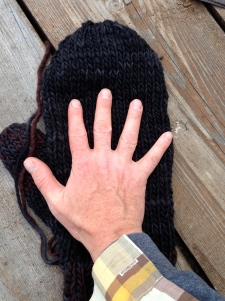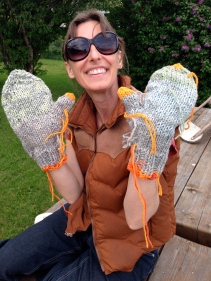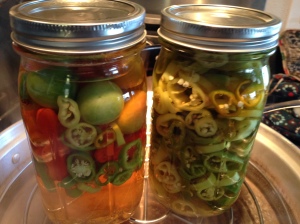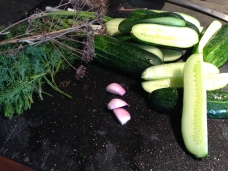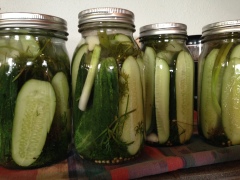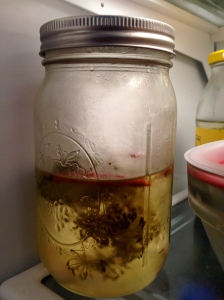The Get Your Pitchfork On! blog is three years old! I have faithfully updated it every Sunday since January 2012, even during graduate school. I am proud of myself for that. But doing so takes a lot of time and, because of said schoolwork, the things that have gotten pushed aside—playing fiddle, hiking, writing for publications, and making collage artworks—are starting to get impatient with me. And I’m starting to feel their absence. I’m also hoping to embark on a new project in 2015 and want to make room. Not sure what the next thing is yet—a job? A book? Whatever it is, I feel the need to create a vacuum for it to fill.
If you are a subscriber to this blog: THANK YOU. Please stay subscribed; once I have news I will certainly share it here. I will also continue to update the GYPO Facebook page and website. If you have been a guest post-writer: Thank you! You took some of the pressure off me and added a welcome breadth to the content and voice of this blog.
When I decided to suspend production of the GYPO blog, I started reading old posts. It’s kind of like a photo album and diary. Here are some of my favorites:
Phynn and the Baby Chicks. Boy, that dog was a pain in the keester, but she was smart.
Peepee. You never know what will thrill a three-year-old.
Organic Gardening: Not the Hippie Lovefest It’s Made Out to Be. Pretty much speaks for itself.
How Many Seeds Make a Plant? One of those moments when I was certain there was a place for GYPO in the world.
K&M Wellness Retreat. Our farm was a respite from the cruel world for more than just Mike and me.
Ladies and Gentlemen, Start Your Engines. A fun week in my life—the publication launch of Get Your Pitchfork On!
Farm-Inspired Art. Our farm inspired lots of people to create.
A Heart of Cheese. In which I compare my dual-heritage of Minnesotan and Wisconsinite.
The Art of Value-Added Products. This is the first in a series of pieces that got “picked” up by Handpicked Nation.
It’s Not the Size That Counts. How big is your bar?
Raising Rural Children. One of my most search-engine-driven posts.
Team Players. One of my few purely “Kristy Spouts Off” posts, about our polarized politics.
Celebrating 40 Years of the Encyclopedia of Country Living. An homage to the book that made GYPO possible.
Mending Day. One of the posts written in Portland, where it was more of a challenge to comment about living in the country—since we weren’t!
Seed Catalogs A-Go-Go. A compendium of companies, sorted by state.
Is Homemade Jam a Bargain? A cost-benefit analysis.
Cottage Industry Laws. Part of my transition into writing about food systems, inspired by my graduate work.

